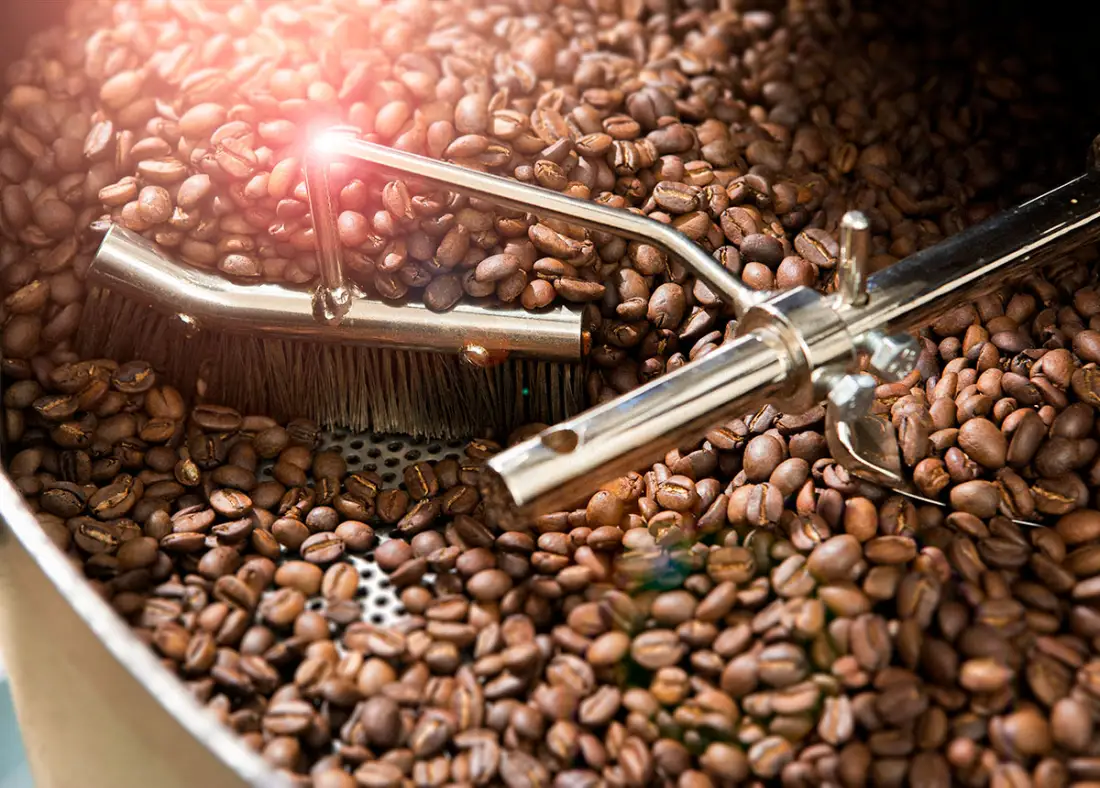Objectives
Our 5-step pathway is supported by the New Zealand Specialty Coffee Association (NZSCA). It provides tailored tools and resources to the coffee sector to help lower their emissions and unlock business benefits.
Eligibility
Any coffee roastery in New Zealand can access this pathway for free.
Your decarbonisation journey starts here
There are two ways to access the decarbonisation pathway.
Sign up for a series of curated emails below. We highly recommend this method as you will:
- Be alerted as soon as new resources are added
- Receive invitations to events and webinars
- Be the first to know about new co-funding opportunities
Or you can jump straight into things by visiting our tools and resources page.
The climate impact of the coffee roasting sector
New Zealand has a vibrant cafe culture and a global reputation for high quality roasts and skilled baristas. With close to 200 coffee roasters there is a variety of speciality beans, blends, and brews for consumers to choose from.
Coffee roasting is a fast-growing sector, with imports of green beans into New Zealand doubling since 2003. This indicates an increase in market share for fresh roasted coffee. But with coffee roasting increasing, so too are the emissions attributable to the sector.
In New Zealand, fossil fuel use for the average batch of beans is responsible for an estimated 80% of process related emissions. A survey by EECA suggests coffee roasting likely contributes about 4kTCO2e primarily from the use of natural gas during the roasting process. In a coffee roastery gas is responsible for the majority of the emissions.
The coffee industry is not immune to the effects of climate change. Most notably, due to rising fuel and importation costs of green beans, and the warming climate and increased rainfall decreasing availability. This is backed up by international research published in PLOS One(external link) that found coffee beans, compared with crops such as avocado and almond trees, are particularly vulnerable to the changing climate. There is evidence predicting a decline in crop yield in coffee-growing nations globally by 2050. Estimates relating to increases in temperature likely mean the number of regions suitable for growing coffee will drop by half.
Small steps taken by coffee roasteries across New Zealand will help reduce the impact of the industry on the climate, future proof businesses and look after our people and the environment.
But remember, reducing emissions makes not only good environmental sense, but good business sense too.
Register
Want to receive tailored tools and resources straight to your inbox? Sign up to the Coffee Decarbonisation Pathway now.
Decarbonising is another way for coffee roasters to innovate and future-proof their operations.
The business good of decarbonisation
Switching away from fossil fuels can have many benefits for business, beyond reducing greenhouse gas emissions.
- Cost savings – reduce operating costs through energy efficiency and fuel switching.
- Social license – improve your reputation with socially responsible consumers and investors.
- Brand value – tap into new markets, spark innovation and create business opportunities.
- Employee engagement – attract and retain talent.
- Compliance – stay ahead of regulation for climate change mitigation.
Kōkako says ‘Hello’ to low-carbon operations
Kōkako Organic Coffee Roasters is at the forefront of a low-emissions coffee roasting sector in Aotearoa.
Managing Director, Mike Murphy, says business has a leadership role to play in changing habits and driving positive change when it comes to sustainability and reducing carbon emissions.
The sooner the switch, the greater the reward
The earlier businesses make changes, the faster potential cost-savings can be unlocked. By switching to low-emissions solutions soon, you can protect your business from potential fossil fuel supply and cost uncertainty. In addition, by acting quickly, your businesses may be able to get ahead of the pack for popular technologies – particularly if there is competition for limited resources.
Get started
Ready to begin? Explore our resources for the Coffee roasting sector and start your decarbonisation journey now.
Wayfinder
-
Tools and resources
-
Co-funding opportunities
-
Other sector pathways

